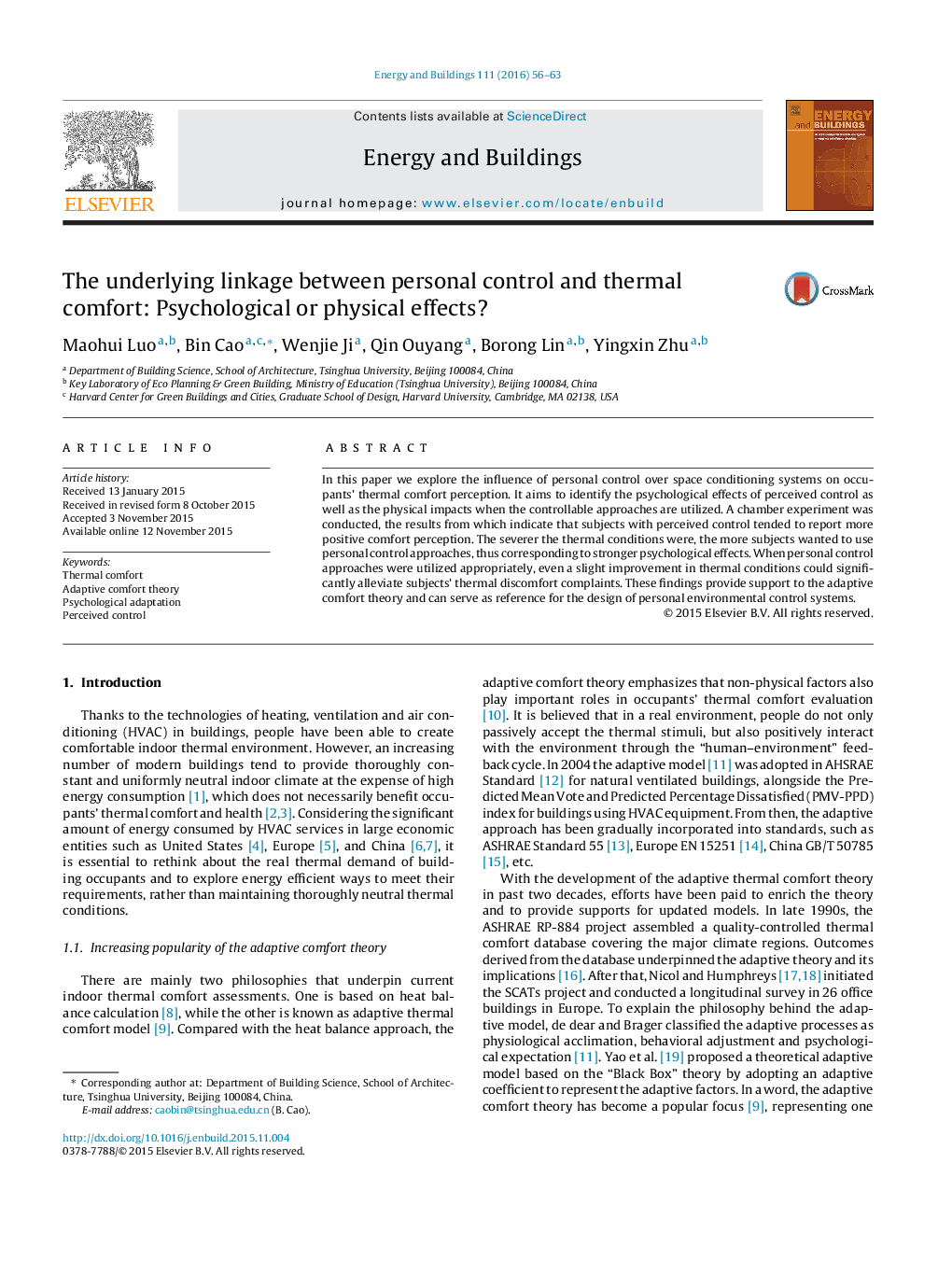| Article ID | Journal | Published Year | Pages | File Type |
|---|---|---|---|---|
| 6730771 | Energy and Buildings | 2016 | 8 Pages |
Abstract
In this paper we explore the influence of personal control over space conditioning systems on occupants' thermal comfort perception. It aims to identify the psychological effects of perceived control as well as the physical impacts when the controllable approaches are utilized. A chamber experiment was conducted, the results from which indicate that subjects with perceived control tended to report more positive comfort perception. The severer the thermal conditions were, the more subjects wanted to use personal control approaches, thus corresponding to stronger psychological effects. When personal control approaches were utilized appropriately, even a slight improvement in thermal conditions could significantly alleviate subjects' thermal discomfort complaints. These findings provide support to the adaptive comfort theory and can serve as reference for the design of personal environmental control systems.
Related Topics
Physical Sciences and Engineering
Energy
Renewable Energy, Sustainability and the Environment
Authors
Maohui Luo, Bin Cao, Wenjie Ji, Qin Ouyang, Borong Lin, Yingxin Zhu,
